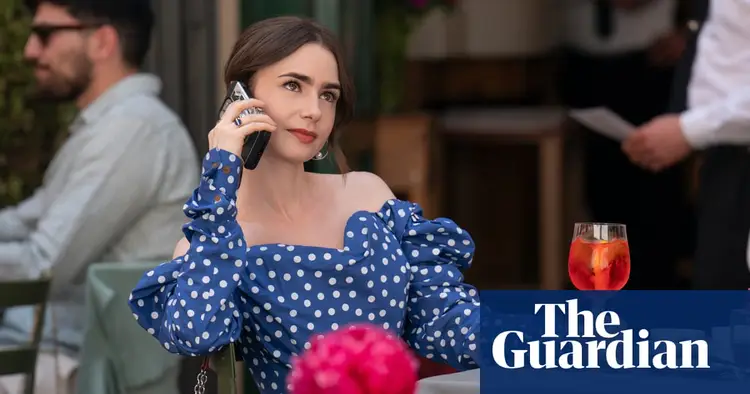‘Delightfully delulu’: in defence of Emily in Paris

It's a given that not all TV shows appeal to everyone, no matter how innocent they might seem. Some people might even be bold enough to dismiss Gilmore Girls. However, there’s one charming Netflix series that really seems to attract criticism: Emily in Paris.
Described as a “crazy mess” and criticized for its acting, poor French accents (even from the French cast) and the fact that not much occurs, even after 40 episodes, there are still a passionate group of fans who understand what the show aims to provide: pure escapism.
If you haven't heard of the popular romantic comedy that spans four seasons, it follows Emily, a young American in her twenties, who relocates to Paris for a marketing job. She immerses herself in an enchanting life filled with stylish clothes, daily treats, and a limitless marketing budget, all while blissfully ignoring any concerns about how she pays for this extravagant way of living.
Much like the initial bite of a flawless croissant, it's delightfully airy and rich; indulging too much might spoil its allure (though I have my doubts about that), yet it's so delightful that resisting it is nearly impossible.
At the beginning of season four, Emily finds herself single again just as her incredibly charming British boyfriend, Alfie, reappears. Meanwhile, her equally handsome French chef friend reveals that he has been in love with her for a long time (which everyone suspected). In the gripping finale of season three, he was left at the altar by his fiancée, Camille, who confessed she couldn’t marry him because of his feelings for Emily. She also conveniently omitted the fact that she's involved with her artist friend, Sofia. The complicated romantic relationships among this group in Paris drive much of the season’s plot.
Although Emily finds herself in a bit of an uncomfortable situation, it’s still a pleasant one as she reflects on her choices and imagines the group of attractive, sweaty men she runs by.
From a definitely female heterosexual perspective, Emily’s life seems almost perfect, sprinkled with a few minor flaws to keep it real—like an all-out, dramatic fit she throws at her landlady. These moments serve as a reminder that she’s just like the rest of us.
The plotlines reminiscent of soap operas gain an extra touch of glamour from Sex and the City, courtesy of the same creator, Darren Star. Emily confidently walks through the city with her phone always in hand, ready to catch up with her stylish friend Mindy. Their conversation revolves around her most recent blunder, which, coincidentally, is taking off on TikTok.
It's an idealized vision of life that presents the everlasting American fantasy of Paris (and a touch of Rome) as the ultimate city of love. Here, the streets are filled with singles, mouthwatering pastries, and some of the most stylish people in Europe. This is the Paris that Rachel Green and Carrie Bradshaw dream of, the one that makes Emily Blunt swoon in The Devil Wears Prada.
However, this show doesn’t require a serious approach because it doesn’t adopt a serious tone itself. When a flustered Emily proposes that using a Kiss Cam at a basketball game could be a brilliant marketing tactic for an upscale perfume, she inadvertently promotes a woman’s new moisturizer that’s really just rebranded lubricant. At the same time, the runaway bride, Camille, is located in Monet’s Japanese gardens in Giverny, where she has taken up the unusual job of cleaning lily pads (as one does).
It's a wonderfully escapist show that gives you a rush of joy, much like the thrill Emily feels with her first taste of a croissant or the excitement that comes from sharing a picture of it. Occasionally, there are more serious storylines that touch on important themes, like feminism in fashion, but only if they lead to a positive resolution. In this lighthearted sitcom world, nothing truly negative occurs; and if something unfortunate does happen, justice is always restored, reflecting a kind of fairness that’s often missing from real life.
"Emily in Paris" is a unique gem—a blend of pop culture and digital trends presented in vibrant colors. Life can be tough, especially for those in their twenties and thirties, particularly women who are constantly faced with troubling news about violence and hate that disrupt their peace. In this context, the show offers a comforting escape from the relentless negativity of current events.
After four seasons, it's clear that "Emily in Paris" has already established its worth, and there's no need to argue about its quality since the numbers are impressive. However, any series that offers viewers a bit of escapism deserves appreciation. After all, that kind of enjoyment is always in vogue.











































